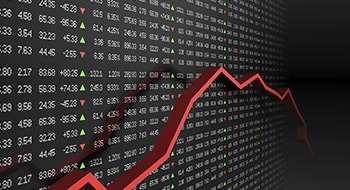
Best of investments in 2014
What do money managers, active management and real assets have in common? Those are the investment stories our readers were interested in the most this…
- By: Staff
- December 31, 2014 September 13, 2019
- 10:37

What do money managers, active management and real assets have in common? Those are the investment stories our readers were interested in the most this…

Global exchange-traded product assets are expected to double to US$6 trillion ($7 trillion) over the next five years, BlackRock predicts.

Diverging global monetary policy will have an impact on every asset class, but poses interesting and diverse opportunities for proactive investors, says the global market…

Why we need to keep talking about LDI—even in a low-rate environment.

As institutions invest less in traditional hedge funds, managers are considering new products to attract investors, says EY’s 2014 global hedge fund and investor survey.

The Concordia University Foundation has announced the creation of a sustainable investment fund.

Dalhousie University's board of governors decided on Tuesday not to divest its holdings in publicly traded companies that are large carbon producers.

Amid a global economic slowdown and a low interest rate environment, there are still many ways to make money in the new year.

Recent decisions by two large U.S. public pension plans to pull back from hedge fund investments, and the likelihood of a sixth consecutive calendar year…

Tactical investing can provide opportunities and help you avoid “blind spots” in an uncertain environment, explained Sadiq Adatia, chief investment officer of Sun Life Global…

As asset growth in traditional hedge funds from institutional investors continues to slow, hedge fund managers are pinning their hopes on the power of new…

Using a defensive strategy in the Canadian equity market remains a challenge for many institutional investors, given the limited breadth of investable options, according to…

Investor interest over the next five years will gradually shift back towards active strategies.

S&P Dow Jones indexes and the Toronto Stock Exchange (TSX) have launched the S&P/TSX Composite Shareholder Yield Index and the S&P/TSX Composite Buyback Index.

The largest pension fund in the United States plans to end its hedge fund program in an effort to simplify its investment portfolio and reduce…

Dalhousie University’s DB plan is driving in a new direction

After last year’s strong market returns, should pension funds put the brakes on low-volatility strategies?

In a previous article, I focused on the decline of active management, arguing not that the potential for active management has declined over the past…

Unigestion has announced the launch of its first-ever Canadian-domiciled world developed equities fund.

Exchange-traded funds (ETFs) and exchange-traded products (ETPs) listed in Canada gathered US$1.25 billion ($1.36 billion) in net new assets in May to hit a new…

Disruptive technologies are changing the world—and institutional investors can benefit

Benchmark-oriented active managers will fall behind.

It might seem strange to hear a low-volatility equity manager say it's a bad time for low-volatility stocks—but that's exactly what we heard over lunch…

Sideways markets deliver below-average returns, and we probably have a few more years to go, said Kim Shannon, president and chief investment officer of Sionna…

Investors need to be intelligent about risk taking in volatile times, but the path they take won’t be identical, according to Mark Cestnik, managing director…